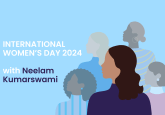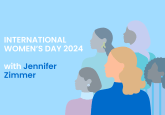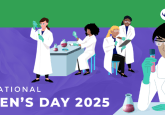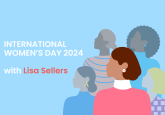Closing the gap: an International Women’s Day interview with Otilia Cheregi
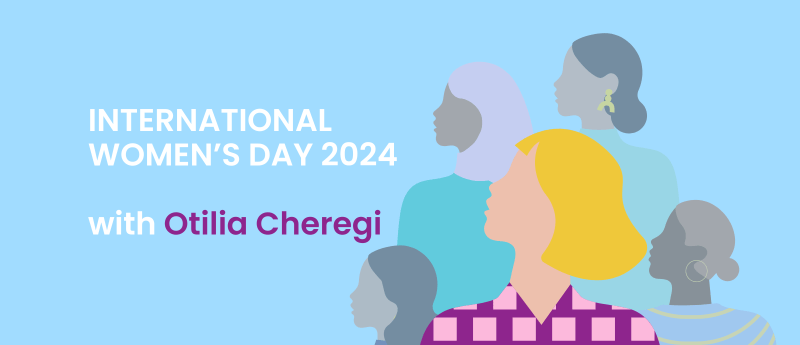
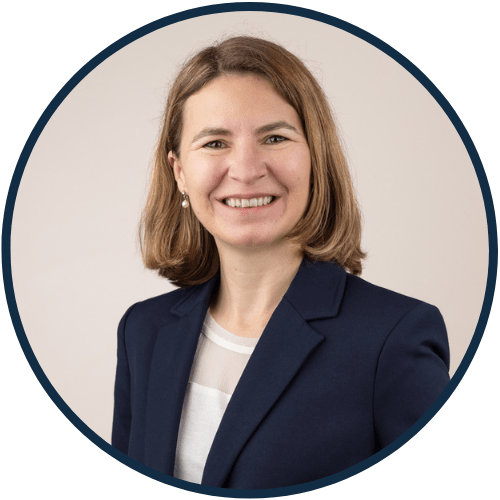
Otilia Cheregi, PhD
Principal Investigator
TATAA Biocenter (Gothenburg, Sweden)
Otilia Cheregi holds a master’s degree in Plant Genetic Engineering from Babes-Bolyai University (Cluj-Napoca, Romania) and a PhD in Biology from the University of Szeged (Hungary). After completing her PhD in 2008, Otilia pursued postdoctoral studies at Arizona State University (AZ, USA), Umeå University, and Gothenburg University (both Sweden), focusing on fundamental research involving cyanobacteria, algae and plants. Her work has resulted in over 20 publications.
After spending 15 years in academia, Otilia transitioned to Senior Project Manager and Principal Investigator at TATAA Biocenter, gaining expertise in regulated bioanalysis. She leads the development and validation of nucleic acid assays on different platforms including qPCR, dPCR and Two-Tailed RT-qPCR. These assays are used to support gene expression analysis, pharmacodynamic (PD) and biomarker endpoints, biodistribution and shedding of gene therapy products, and PK/distribution of transgene products.
What motivated you to pursue a career in science and how have you overcome challenges along the way?
To become a scientist was a call rather than a choice. A combination of reading ‘Science and Technology’ magazine as well as science fiction literature fueled my interest. It could have been any science topic, but in the end I chose biology.
For almost any scientist, there are three fundamental challenges: funding, publishing and work-life balance. As I was trying to make my way in the field of algal and cyanobacterial research, which is heavily underfunded, I relied on networking, conference participation and presenting my work to obtain positions. Overcoming the pressure to “publish or perish” was also aided by collaboration and turning negative results into publishing opportunities. Having a spouse who is also a researcher made it easier for me to relocate to different countries and cities. Managing work and personal life requires a delicate balance and being comfortable when one aspect dominates the other. Challenges are part of any journey, but when you also have fun, they can become opportunities.
Are there specific areas within your field where you see opportunities for more women to make significant contributions?
Women can make significant contributions to any field of research. Four years ago, the only female-exclusive Nobel Prize in Chemistry was awarded and just in the last year, Katalin Karikó was recognized for her contributions to the Nobel Prize-winning work on mRNA vaccines. These achievements demonstrate that we can contribute and get recognition, whether it’s for a new and upcoming technology or a more traditional line of research based on accumulating evidence. Despite this recent success, the percentage of women receiving a Nobel Prize in chemistry or medicine in the last 10 years is only 12%. Given the chance and by overcoming gender biases, we are equipped to close the gap.
How important has mentorship been in your career, and have you had any notable mentors or role models who influenced your journey?
Early in my career, I discovered that the scientific community can be competitive, with little time to spare for luxuries such as mentoring. However, during my first postdoc in the US, I joined the Association of Women in Science (AWIS). Listening to their stories of success, courage and trail blazing was very similar to being mentored in a group.
Despite not finding a mentor, the compass to guide me in a scientific career, I admired many women, and I tried to emulate them. My first female supervisor (Prof. Christiane Funk, Umeå University), a monument of efficiency, taught me that there is a direct relationship between work efficiency and trusting people. I still look up to women who inspire me and I find them equally amongst senior and younger groups.
Are there specific policies or initiatives that you believe could enhance and support the work of women in scientific careers?
At least in Sweden, there has been a lot of progress in supporting women’s scientific careers through paid and shared parental leave, gender equality measures and equal pay. However, a key challenge remains in the pursuit of inclusion. It is essential to continuously monitor the ratio of men to women in the field and ensure that in places where most employees are women, top management positions are not male-dominated. It is important to consider women of all ages and recognize that their needs may vary depending on their career phase. Do not assume that just because a woman has a lot on their plate, they do not want to be considered for a top leadership position. Instead, ask women what they want rather than assuming what they want.
Is there a female colleague you would like to commend for their contributions or achievements in the bioanalytical field specifically?
Since transitioning from academia to industry, I have had the chance to meet women from whom I have learned a lot in a very short time. Lydia Michaut from Novartis (Basel, Switzerland), a member of our Scientific Advisory Board at TATAA Biocenter, has taught me the basics and the hard core of bioanalytical assay validation. With her help, I could apply the scientific mindset polished in so many years of research in academia to the diverse and fast-paced field of bioanalysis.
I worked with Fabienne Deckert, also a member of TATAA Scientific Advisory Board, who has been instrumental in our journey towards achieving GLP accreditation. From her, I have learned that scientific judgment is the foundation of any bioanalysis, and compliance naturally follows when that foundation is solid. Last but not least, I would like to recognize my colleagues and project managers at TATAA Biocenter, together with whom I have brainstormed and learned so much and who are today in command of our bioanalysis projects.

